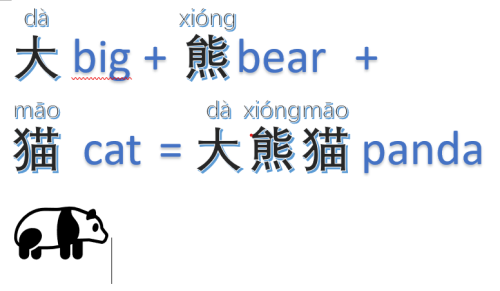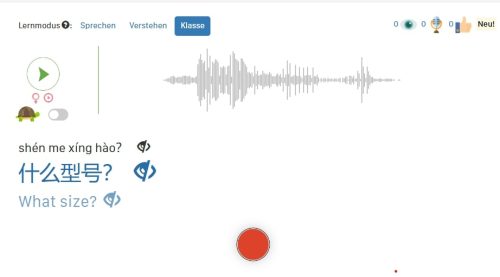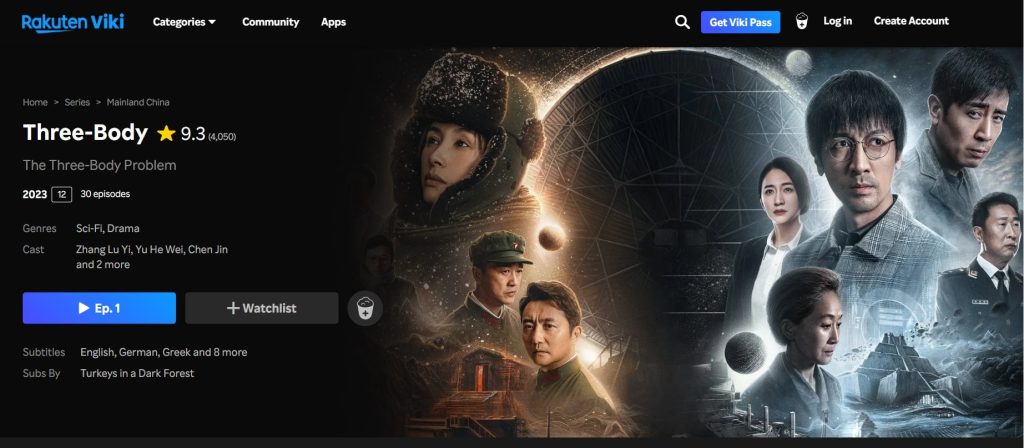
There is nothing more frustrating than diligently learning a foreign language over months or even years and then finally having the opportunity to travel to a country where the language is spoken – only to discover that nobody can understand you when you order in a restaurant or attempt to buy train tickets. Unfortunately, this is a situation that students of Chinese will frequently encounter if they are not very careful. Learning how to correctly pronounce a language like Mandarin is something that you need to go about in the right way. This article gives you some tips for how to tackle learning to pronounce Mandarin. As a general rule, the sooner you start applying these methods the better. However, even students who have made a false start will find that it is never too late to improve their Chinese pronunciation
1. Find a good Chinese teacher
The most absolutely essential factor for students to improve their Mandarin pronunciation is to have a good teacher. With all of language learning apps available for Chinese – some of which are truly excellent – people might forget that classes taught by teachers are still the most effective way to learn. This is especially true when they are just starting out to learn the basics and who need to establish a solid foundation in pronunciation. A good teacher is essential for two reasons:

Modelling correct Mandarin pronunciation of Pinyin and tones
A good teacher will imprint the correct pronunciation of the Pinyin into their students’ brains by carefully and slowly pronouncing each sound again and again as well as diligently training tones.
Feedback on correct Chinese pronunciation
The other essential input that a good Chinese teacher will provide is feedback. A teacher will carefully and patiently correct students’ pronunciation and correct usage of tones, having them repeat words and phrases again and again until they get it right.
If there are no live, in-person classes available in your region, consider taking online group classes or online tutorials with a private coach. Personal tutors can be found on websites and apps such as Preply, SuperChinese or iTalki. Even if you only take intermittent classes to supplement private studies with apps and the like, you will reap huge rewards.
2. Learn how to pronounce Pinyin
Becoming completely familiar with how to pronounce Pinyin, the system for writing Chinese characters using Romanized letters, is going to be essential for most students of Chinese (unless they plan to center their studies in Taiwan which uses a different phonetic writing system). The internet offers several useful pronunciation guides for Pinyin with a good reference to your own native language regarding how Chinese is pronounced. For example, there’s a good one on Digmandarin which explains how to make all of the possible sounds in the Mandarin language and highlights some differences between Pinyin and English spelling. Of course, Chinese students can also find plenty of YouTube videos explaining how to pronounce pinyin such as this one by Chinese for Us – Learn Mandarin. There is also a highly recommendable free Pinyin-training app called Pinyin Master which trains the basics of Pinyin using a fun and gamified method and which is also great for training tones.

3. Be aware of the pitfalls of Pinyin with respect to your own native language
Every time a student learns a new language, there will be certain combinations of letters which either remind them of sounds in their own language or which don’t exist at all in their mother tongue. One example which native English speakers often mispronounce is the Pinyin combination of “zhong” for example in 中国 (Zhōngguó = China). It’s too easy to want to make this rhyme with “song” or “King Kong” and forget that the pinyin “o” in this combination is really more like a long “u” sound. German speakers, on the other hand, are often confused by the “zh” sound of Zhōngguó because their native language does not possess a similar sound. One way around this problem is for students to develop their own personal pronunciation guides which will guide them toward the right sounds. In the above example, a native English speaker might write /jung/ to help them remember the correct pronunciation. A German speaker could trigger the correct pronunciation by writing /djong/.

4. Listen frequently to train Mandarin tones
Speaking of tones – learning Mandarin tones is a challenging concept for beginners whose native languages don’t have intrinsic tones built into everyday vocabulary and there are many pitfalls that mistakes in tones might lead you to. For example, if you don’t get your tones right, you might think it’s time to go to bed and sleep – 睡觉 shuìjiào – and you will miss the delicious boiled dumplings- 水饺 shuǐjiǎo – eaten at the start of Lunar New Year! Frequent listening and repeating is a vital step to making tones come naturally to you. Chinese learning apps (see this article for more information on Chinese learning apps) and other technology will prove useful for students to master this language feature.
The key is to realize that tones are quite musical and that speaking Chinese is indeed a bit like singing. Give yourself plenty of opportunities to listen to the music of the language. Beginners will benefit from flashcard apps with an audio function for each vocabulary word. Don’t forget to repeat each word out loud.
Students of all levels can employ frequent and repeated listening to native speaker recordings of texts which they can read along to which will allow them to appreciate to musical nature of Chinese. Check out The Chairman’s Bao or DuChinese, both of which offer high quality recordings of their reading texts.

But what if you can’t sing? Don’t worry! Just relax and listen to even more audio material. Most people tend to underestimate their own musical abilities and the same is true for learning Chinese tones. If you listen a lot, before you know it, tones will be just as intrinsic a part of a character’s pronunciation as pinyin phonetics.
5. Use apps specifically designed to train pronunciation
The app Speechling allows students to record their pronunciation of certain sentences suitable to their level of Chinese ability. Then they get feedback on their recordings from an actual teacher.
The apps Duolingo, Rosetta Stone and Babel offer pronunciation practice and digital feedback as part of their curriculum.

6. Get technical about learning different sounds
Learn a few linguistic concepts regarding mouth anatomy and study pictures showing the insides of someone’s mouth to illustrate the correct tongue position. A good source of these illustrations can be found in the app Chinese Deciphered (available for android). One example of using these effectively would be illustrated by creating the difference pinyin sounds “qi” and “chi”. For both of these sounds, an English native could conceivably use the initial letters “ch” to illustrate the sound. However, it is only by practicing the nuanced difference created by placing the tongue on the upper palette near the teeth for “qi” contrasted by placing the tongue farther back on hard palette for “chi” that learners can fully learn to distinguish between these two sounds. It isn’t necessary to get a PhD in linguistics and it isn’t necessary to apply such focused study for most pinyin sounds like such as “b” or “t”, but by intensely practicing hard sounds with the correct linguistic input, you can improve your pronunciation by leaps.

7. Have access to good quality digital dictionaries
Digital dictionaries such as the app Pleco or the website mdbg.net provide audio examples of pronunciation for all vocabulary, which is useful especially in the early stages of learning PinYin and tones. Refer to these recordings as often as possible.
8. Get natural language exposure through Chinese videos, podcasts and language exchanges
Learning the phonetics and tones alone is not enough to guarantee perfect pronunciation. Each language has its own rhythmic structures and idiosyncrasies which can only be learned by listening to native speakers in real conversations. The best strategy to improve this aspect of the language is to listen to understandable content as much as possible. Fortunately, the internet age affords us plenty of opportunities to do this and provides quality listening content for Chinese learners of all abilities. Of course, expanding your listening content will also increase your listening comprehension and trigger synergistic learning effects for your whole Chinese studies!
· Chinese videos, movies and series
You can greatly benefit from exposure to the Chinese language from watching movies, videos, YouTube or Bilibili. If you are a beginner, feel free to set up subtitles in your language so that you can understand the content you are watching. The important point here is to hear how the Mandarin language is used in daily conversation, which will begin to impart a more subtle understanding of how Chinese really sounds when it is spoken by native speakers in natural settings. This is especially important for training tones. One way to make films and series more comprehensible is to view something you have seen before or already know the story. For example, if you have already seen Netflix’s “Three Body Problem”, check out the Chinese original 三体 (Sān tǐ) available on streaming services such as Viki.

-
Only use Chinese learning apps with good quality audio recordings by native speakers
It’s important that your Chinese learning apps use recordings of real, human voices instead of bad, unpleasant-sounding computer-generated robotic speaking models. Even though these computer robots have improved their speaking ability in recent months, there is nothing that compares to recordings of real human beings if you are using an app to model perfect pronunciation. The aforementioned apps, the Chairman’s Bao and Du Chinese, which are great for practicing reading can be supplemented by more general Chinese apps such as SuperChinese or HelloChinese.
-
Practice speaking Mandarin with a tandem partner
Find a native Chinese person who wants to practice your native language and who can offer to speak Mandarin with you. This kind of relationship is called a language exchange or a tandem. You can often find people in your city who are looking for a language exchange partner, for example on the message boards of universities or other higher learning institutions. Then you can set up a coffee date with them. Or you can take advantage of technology and use one of the many apps or websites such as Tandem and HelloTalk which match people to potential language exchange partners around the world and then set up a virtual meeting.
Improving Chinese pronunciation is a journey that requires patience, practice, and the right strategies. By focusing on key aspects such as finding a good teacher, mastering Pinyin, being aware of common pitfalls, and immersing yourself in the language, you can make significant strides in your ability to speak Mandarin clearly and confidently.
Understanding and internalizing the nuances of Pinyin and tones is essential for accurate pronunciation. Regular listening and repetition, along with a musical approach to tones, will help embed these sounds into your memory. Remember, tones are not just an added feature of Mandarin but an intrinsic part of each word’s meaning.
Furthermore, technical knowledge of mouth anatomy and phonetics can demystify challenging sounds, making them more accessible. Lastly, natural language exposure through videos, movies, podcasts, and real conversations with native speakers enriches your understanding of Mandarin’s rhythm and flow. This exposure not only enhances pronunciation but also improves overall language comprehension and fluency.
Incorporate these methods consistently, and you’ll find that improving your Chinese pronunciation is not only achievable but also an enjoyable part of your language learning journey. The effort you put into mastering pronunciation will pay off when you can confidently communicate in Mandarin, making your interactions in Chinese-speaking environments more rewarding and meaningful. Happy learning!
Author
Heather Buchanan-Schrader

An unashamed language nerd from Anchorage, Alaska, Heather’s life has led her to a degree in German and International Studies from Willamette University and a three-year stay in Taiwan with her German husband at the end of the eighties. In Taipei she took intensive Chinese courses at the Mandarin Training Center of Taiwan Normal University and also taught English at the Taipei Language Institute. After the fall of the Berlin Wall in 1989, she became intrigued by the life in a former East Bloc country and finally decided to relocate to Leipzig, Germany in 1991. There she and her husband established the FAE Fachinstitut für Angewandtes Englisch, a private English institute focusing on teaching adults, translations and language coaching. This has been a successful venture for over 30 years.






















